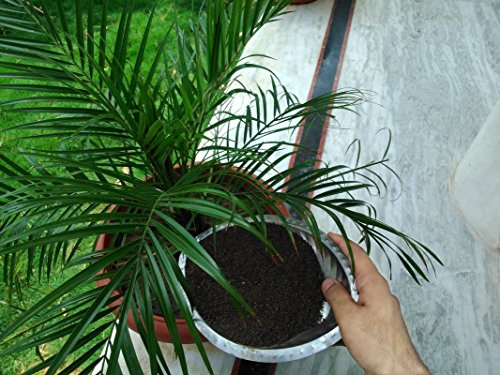Customer Services
Copyright © 2025 Desertcart Holdings Limited







Recycles Waste Vermicomposting helps to recycle many different kinds of organic wastes. The raw materials for a vermicomposting project are readily available in most homes. They can include kitchen waste, paper products, leaves and other yard waste, and manure and other organic waste materials. The only organic wastes that worms cannot compost are bones and oily or fatty substances. Has Low Costs After initial outlay for the proper equipment, producing vermicompost is relatively inexpensive, compared to its value as a soil amendment. Production processes are scalable and can range from a simple vermicomposting box for home use to larger production operations that manufacture vermicompost for commercial sale. Also, the worm species required for vermicomposting are readily available, and care and upkeep is minimal. Helps the Environment Vermicompost is a renewable and environmentally friendly resource. A totally natural product, vermicompost can help reduce the need to apply chemical fertilizers, which is a less sound practice from an ecological standpoint. Vermicomposting can also help to reduce the amount of organic waste disposed of in landfills. According to the FootHill Worm Ranch, an average family with a small 2 foot by 4 foot worm bin can prevent more than 1,400 lbs. of organic household waste from entering landfills each year. Contains More Nutrients According to the Purdue University Extension, vermicompost provides high amounts of plant nutrients, including nitrogen, phosphorus and potassium. Typically, vermicompost has more than twice the average amounts of these nutrients, compared to commercial potting soil. Vermicompost may also contain plant growth regulators that improve plant growth. The nutrients in vermicompost can help plants grow more vigorously, produce bigger blooms and both increase and improve the quality of crop yields.
Trustpilot
1 month ago
3 weeks ago